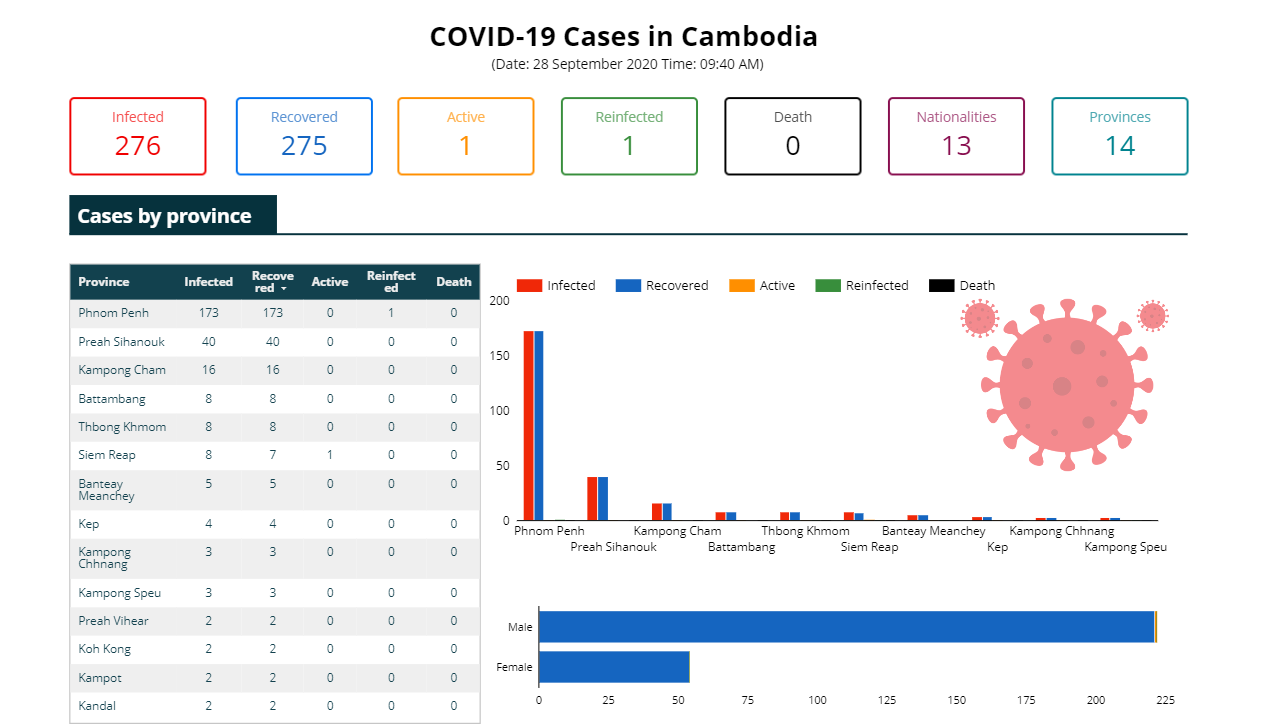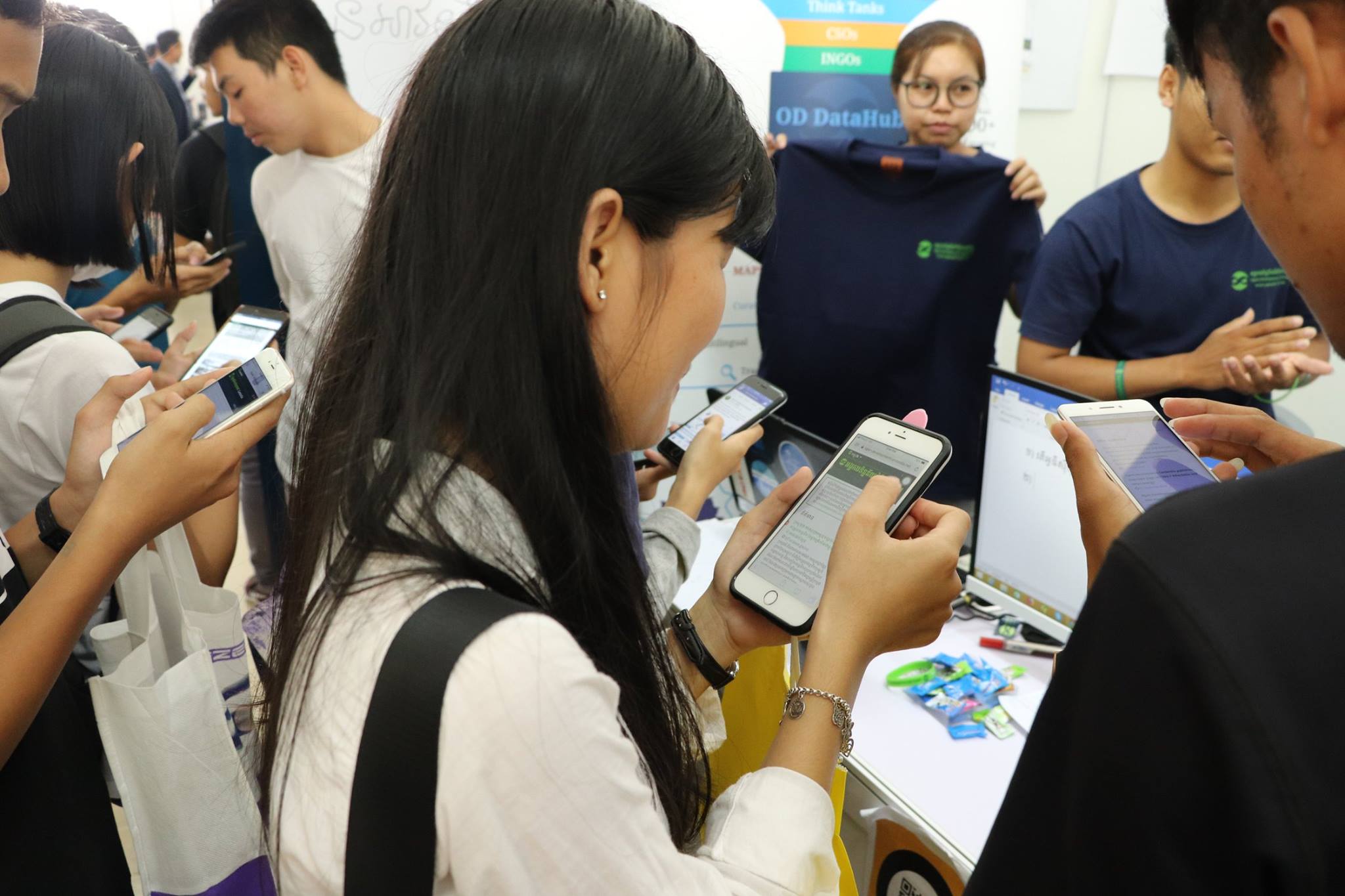International Day for Universal Access to Information 2020: Saving lives, building trust, bringing hope!
Under the slogan “Access to Information – Saving Lives, Building Trust, Bringing Hope”, this year’s International Day for Universal Access to Information on 28 September highlights the importance of this right in times of crisis. 2020 marks the sixth year the day has been marked since its proclamation in 2015 at UNESCO’s General Conference.
The right to information is instrumental for the work of Open Development Cambodia (ODC). We strive to empower citizens by improving the quantity and quality of available digital data, ensuring that everyone can use it, reuse it and redistribute it for free, in accordance with open data principles. The Cambodian information landscape faces challenges, however, such as the lack of wide dissemination of data and information, limitations in digitized information, low levels of digital literacy – among government officials, civil society and the public – inequalities in accessing information and government censorship of internet users.
In the time of COVID-19, timely and reliable information has been an essential tool to address the outbreak, mitigate its impact and save lives. In such difficult circumstances, access to information and effective communication mechanisms between governments and citizens have been vital. Reliable information transfer facilitates a quick response and mobilization, effective monitoring and reporting procedures and a widespread adoption of preventive measures. It supports the implementation of protocols and emergency decisions such as virus testing and confinement rules, social distancing measures, the closure of schools and the distribution of economic aid packages. By contrast, the spread of disinformation, fake news and unverified information has hindered the management of the crisis and the implementation of health and policy measures.
At the outset of the outbreak, ODC published its COVID-19 dashboard, which compiles up-to-date and reliable data about the evolution of the virus and new cases, official regulations and policies and information about preventive measures.

Access to information is a universal right
Access to information was regarded as very important in the early stages of the establishment of the United Nations (UN). The right to information is a central component to the right of freedom of expression as it is recorded in Resolution 59 of the UN General Assembly of 1946 and in the International Covenant on Civil and Political Rights adopted by the Office of the High Commissioner for Human Rights. Article 19 of the Universal Declaration of Human Rights states that the right to freedom of opinion and expression includes the freedom to “receive and impart information and ideas through any media regardless of frontiers”.
In recent years, the right to information has also been recognized in the signing of a number of international conventions and agreements, such as the Brisbane Declaration on Freedom of Information: the Right to Know (2010), the Maputo Declaration on Freedom of Expression, Access to Information and Empowerment of People (2008), and the Dakar Declaration on Media and Good Governance.
The commitment to improving access to information for all is also reflected in the Sustainable Development Goals (SDGs). Under SGD 16, which seeks peace, justice and strong institutions, target 16.10 urges countries around the world to “ensure public access to information and protect fundamental freedoms, in accordance with national legislation and international agreements”.
Today, 127 countries around the world have freedom of information laws in place, 27 more than in 2014, according to the latest UN report on the progress of the SDGs (2020). Such legislative progress, however, does not always result in in the release or effective dissemination and circulation of more and better information. More specific laws and policies need to be enacted and fully implemented in order to bring actual improvements in transparency and accountability.
Cambodia’s commitment to improving access to information
Cambodia is currently finalizing the draft Law on Access to Information, which is a major step forward for the Royal Government of Cambodia (RGC) in enhancing government accountability and improving the transparency of its public sector. The Law on Access to Information is particularly timely as international voices denounce a deterioration of human rights. In particular, the recent Law on National Administration in the State of Emergency is seen by Human Rights Watch and Amnesty International, among others, as a tool for the government to put further pressure on citizens’ rights and restrict freedom of expression. Cambodia also receives low transparency and high corruption levels year after year in the Corruption Perceptions Index, with a score of 20/100 in 2019, ranking 162 out of 198 countries and territories.
The Law on Access to Information has been keenly awaited by international institutions and national civil society organizations, human rights defenders and the public. The law is the result of a long participatory process that started in 2013 and has been led by the Ministry of Information in collaboration with a Technical Working Group (TWG), which represented a wide range of stakeholders. The TWG consisted of members from i) Ministry of Information, Ministry of Justice, the Council of Ministers, Ministry of National Assembly-Senate Relations and Inspection, ii) United Nations – including UNESCO and OHCHR, and iii) Civil Society Organizations (CSOs) – Advocacy and Policy Institute (API), Cambodian Center for Independent Media (CCIM), the Cambodian Women’s Center (CWC) and the Club of Cambodian Journalists.
Once enacted, the law should increase the release of information by public bodies and institutions while encouraging the public, journalists and relevant stakeholders to access information and participate in public decision-making. Its effectiveness will only be seen with its enforcement, however. Several potential shortcomings that might undermine its effectiveness have been pointed out, including over-broad exemptions, lack of punishments for officials not fulfilling their obligations, lack of compliance with international standards and limited integration of inputs provided by non-governmental stakeholders.[1]
Open data for advancing inclusive societies and building trust in public institutions
Well-informed citizens, equipped with complete, reliable and up-to-date information are a cornerstone in building resilient societies and consolidating trust in more accountable and transparent governments that ensure an inclusive and sustainable development.

Information can play a crucial role in reducing poverty and inequalities in Cambodia by promoting access to and use of essential services, including healthcare and education. Clear information about usage fees, application procedures and assistance can encourage the use of public services, leading to healthier and more educated citizens with better opportunities and capacities to pursue their well-being and livelihoods.
More education translates into improved digital skills and literacy, which, together with higher levels of government openness, is key for evidence-based decision-making and interest in participating in public debates. At the same time, increased public participation also contributes to more responsive governance, facilitating knowledge sharing, intercultural dialogues and reducing inequalities, ensuring a proper representation of different groups in public debates, including vulnerable populations, women, the poor, youth, disabled, indigenous peoples and rural communities.
Government accountability requires administrations to be transparent and clearly explain their decisions and procedures to citizens. Budget information is highly sensitive and of interest to the public, including revenue sources, allocation of public funds and public procurement for the construction of infrastructure. Government officials, especially those at the lowest level of the administration with direct contact with communities must ensure that the information is available and that it is in a form that allows citizens to understand it.
In sum, accurate and reliable information can improve public service delivery, openness and transparency, encourage citizen engagement in public decision-making and inclusive governance, bringing real improvements in the well-being of the population. Amidst the ongoing global pandemic, the importance of leveraging information is more important than ever before. We have seen how accessible and easy-to-understand formats have become fundamental to effectively communicating and disseminating information.
ODC joins the international community in celebrating the 2020 International Day for Universal Access to Information and encourages citizens, institutions and organizations to further work together to ensure the right to information for all. We hope you will also take part by sharing your ideas with the hashtags #AccessToInfoDay and #RightToKnow.
[1] https://www.article19.org/resources/cambodia-analysis-of-the-draft-law-on-access-to-information/


